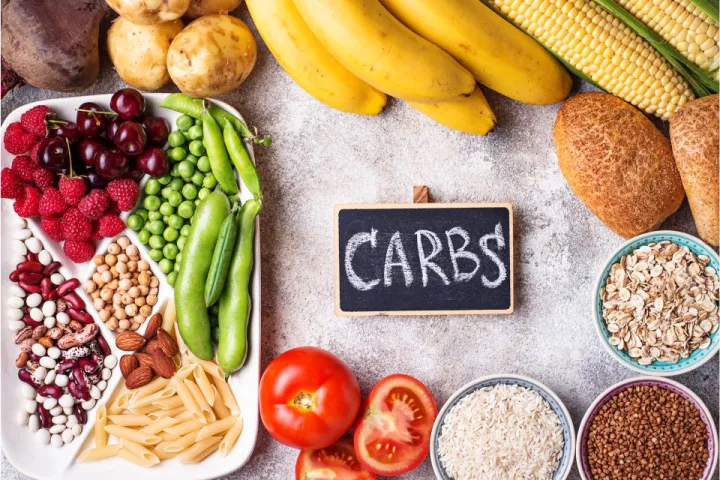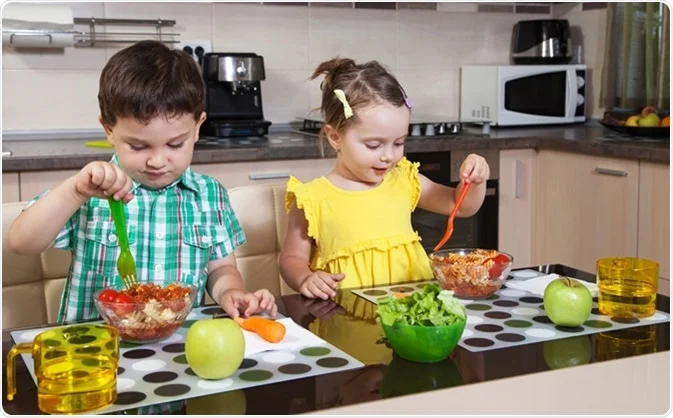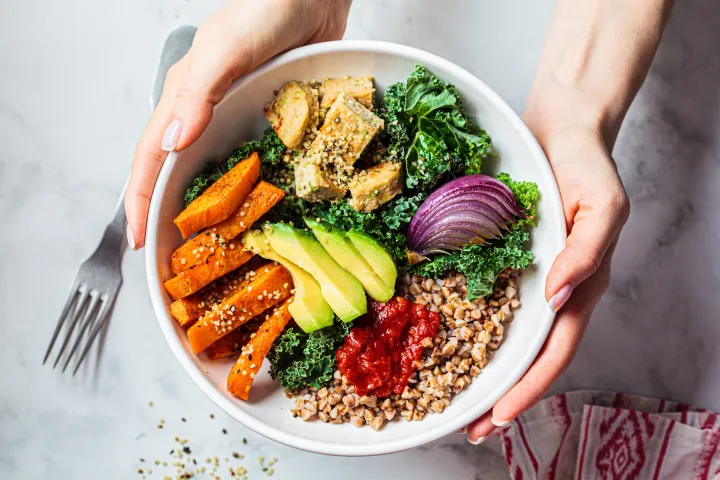Exercise Daily – As a parent or guardian, ensuring that your child is well-nourished is essential for their overall growth and development. One of the ways to achieve this is by providing a balanced diet. In this article, we will discuss the importance of a balanced diet for children and the specific nutrients required for children between the ages of 5 to 12 years.
Proper nutrition is essential for the healthy growth and development of children, especially between the ages of 5 and 12. During this period, children undergo significant physical and cognitive changes, which require a balanced and nutritious diet to support their overall health.
A balanced diet is crucial for the overall growth and development of a child. It provides them with the necessary nutrients required for their physical and mental well-being. As a parent, it is essential to ensure that your child receives a balanced diet that includes all the required nutrients in the right proportions. In this article, we will discuss everything you need to know about a balanced diet for children between the ages of 5 to 12 years.

Importance of a Balanced Diet for Children
A balanced diet is necessary for children because it provides the required nutrients needed for their growth, development, and overall health. A balanced diet comprises various food groups such as carbohydrates, proteins, fats, vitamins, and minerals. Eating a balanced diet also helps to maintain a healthy weight, reduces the risk of chronic diseases, improves cognitive function and concentration, and supports a healthy immune system.
It provides them with the necessary nutrients that help build strong bones and muscles, maintains healthy body weight, and support brain development. A balanced diet also helps prevent various health problems such as obesity, diabetes, and heart disease in the long run.
Nutrients Required for Children
Children require different nutrients in varying amounts at different stages of their development. Here are the essential nutrients required for children between the ages of 5 to 12 years.
Carbohydrates
Carbohydrates are the primary source of energy for the body. They are essential for children as they provide the energy needed to perform physical activities and support brain function. Whole-grain bread, cereals, fruits, vegetables, and legumes are good sources of carbohydrates.
Carbohydrates are the primary source of energy for the body. They provide the body with glucose, which sugar is essential for the brain and body to function correctly. Children should consume complex carbohydrates such as whole grains, fruits, and vegetables, rather than simple carbohydrates such as candy and sugary drinks.
Proteins
Proteins are essential for the growth and repair of body tissues, including muscles, bones, and organs. Children require protein for their overall development. Good sources of protein include lean meats, fish, eggs, dairy products, legumes, and nuts. They also play a crucial role in the immune system, hormone production, and enzyme production. Children should consume protein-rich foods such as lean meats, fish, eggs, nuts, and legumes.
Fats
Fats are a crucial component of a balanced diet for children as they help in the absorption of vitamins and minerals, support brain development, and provide energy. However, it is essential to note that not all fats are healthy, and it is essential to provide children with healthy fats such as monounsaturated fatty acids and polyunsaturated fats found in fish, nuts, and avocados.
They help the body absorb vitamins and minerals, provide energy, and help build healthy cells. Children should consume healthy fats such as nuts, seeds, fatty fish, and avocado while limiting saturated fats and trans fats found in processed foods. The saturated fat dairy is needed for school-age children for growth.
Vitamins
Vitamins are essential for various body functions, including growth, development, and immune function. Children require different vitamins, including Vitamin A, C, D, E, and K, which can be found in a variety of fruits, vegetables, and fortified cereals. Children should consume a variety of fruits and vegetables to ensure they get all the necessary vitamins.
Minerals
Minerals are required for healthy bones, teeth, and the proper functioning of organs in the body. Good sources of minerals include dairy products processed meats, leafy green vegetables, nuts, and seeds. Children should consume mineral-rich foods such as dairy, leafy greens, nuts, and seeds.

Daily Caloric Intake for Children
The caloric intake for children varies depending on their age, sex, and physical activity and level. On average, children between the ages of 5 to 12 years require about 1,200 to 2,000 calories per day. However, it is essential to note that children who are more physically active may require more calories to support their energy needs. Check the Triglyceride Diet.

Tips for Feeding a Balanced Diet to Children
Plan Meals in Advance
Meal planning is the first step towards providing a balanced diet to your child. By planning healthy meals in advance, you can ensure that your child receives a variety of nutrients from different food groups.
Start by creating a weekly meal plan that includes breakfast, lunch, dinner, and snacks. Consider your child’s preferences, dietary restrictions, and activity level when planning meals.
Encourage Your Child to Eat Fruits and Vegetables
Fruits and vegetables are an essential part of a balanced diet for children. They provide essential vitamins, minerals, and fibre that promote healthy growth and development.
To encourage your child to eat fruits and vegetables, try introducing a variety of colours, textures, and flavours. Offer them as snacks, incorporate them into meals, and involve your child in choosing and preparing them.
Limit Sugary and Processed Foods
Sugary and processed foods provide little nutritional value and can contribute to health problems such as obesity, diabetes, and heart disease. To encourage children to promote a healthy diet, limit your child’s intake of sugary drinks, sweets, and processed foods.
Instead, opt for whole foods such as fruits, vegetables, whole grains, and lean meat, protein, and dairy products. Encourage your child to drink plenty of water and limit sugary drinks such as soda and juice.
Involve Your Child in Meal Preparation
Involving your child in meal preparation can help them develop healthy eating habits and make them more likely to try new foods. Allow your child to help with tasks such as washing vegetables, measuring ingredients, and setting the table.
Encourage them to participate in a food group and menu planning and let them choose healthy recipes they would like to try. Make mealtime a fun and interactive experience for your child.

Healthy Meal Ideas for Children
Breakfast
- Oatmeal with berries and nuts
- Whole-grain toast with peanut butter and banana
- Greek yoghurt with granola and fruit
- Scrambled eggs with whole-grain toast and avocado
Lunch
- Turkey and cheese sandwich on whole-grain bread with carrots and hummus
- Whole-grain pasta salad with cherry tomatoes, cucumbers, and grilled chicken
- Veggie wrap with avocado, spinach, and hummus
- Lentil soup with whole-grain crackers and fruit
Snacks
- Apple slices with almond butter
- Carrots and hummus
- Greek yoghurt with berries and honey
- Trail mix with nuts, seeds, and dried fruit
Dinner
- Grilled chicken with roasted sweet potatoes and green beans
- Baked salmon with brown rice and steamed broccoli
- Veggie stir-fry with tofu and brown rice
- Turkey chilli with whole-grain crackers and a side salad
Conclusion
In conclusion, providing a balanced diet of healthy foods for children between the ages of 5 to 12 years is crucial for their growth, development, and overall health. Ensuring that children consume a variety of foods from different food groups will ensure that they receive the required nutrients necessary for their overall well-being.
Feeding a balanced diet to your child between the ages of 5 and 12 is crucial for their growth and development. By following these tips and offering healthy meal ideas, you can ensure that your child receives the nutrients they need to thrive. Remember to make mealtime a fun and interactive experience, and involve your child in meal planning and preparation to promote healthy eating habits. Also, check How Many Eggs Per Day Can Someone Eat on Keto Diet?
FAQs – Balanced Diet for Child of 5 to 12 Years
What are the nutritional needs of 5 12-year-olds?
Try introducing diversified protein-rich foods such as lean meats, fish-cooked beans fat dairy, eggs, pulses, peas and lentils. Children should aim for protein 1-2 times per day. The older should receive half-skimmed or full-flavoured milk.
What is a balanced diet for a 12-year-old?
Teenage girls and boys should aim to have 3 servings of fruit and 5 p.c. vegetable / 1 lb. cheese; 5 to 6 servings of grain and 21 p.c. fatty foods. Those teenagers need water — the most affordable and healthy drink.
What is a balanced diet for a 5-year-old?
The daily nutrition plan should cover 115 calories of fresh vegetables, 425 calories of fruits, 227 calories of vegetable protein and 425 calories of dairy. Children aged 4 to 8 years should have an average daily consumption of 11 – 2 portions of everyday foods. Kids must have water as it is the most nutritive and cheapest drinking option available.
What is a balanced diet for kids?
Choose meat and eggs; choose beans, peas, soy and seeds. Fruits. Encourage the kids to eat various fresh canned, frozen and canned fruit. Find canned fruits that have a lighter appearance or contain fruit juice.



